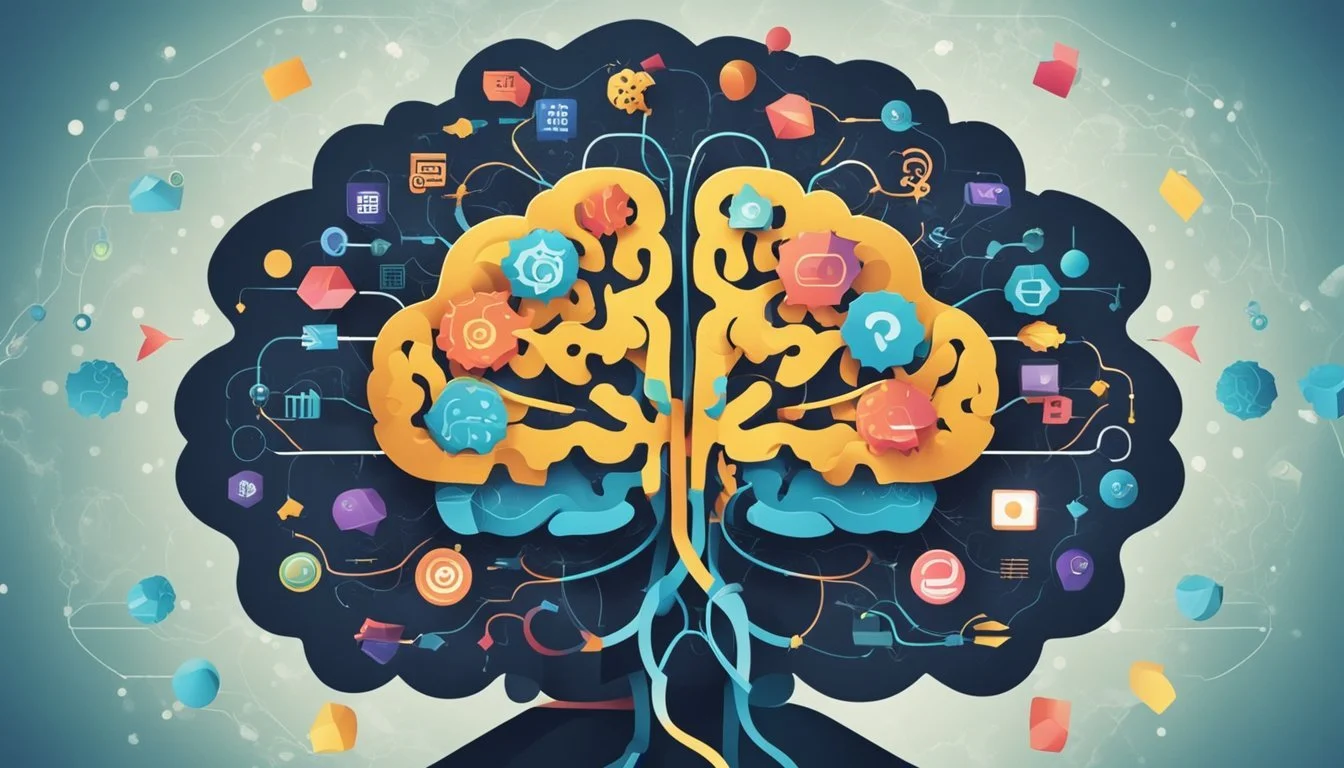7 Documentaries That Explore Different Types of Intelligence
A Journey Into Diverse Minds
Exploring the intersection of film and intellectual exploration, documentaries that delve into the various types of intelligence offer a profound insight into the diverse ways humans understand and interact with the world. These films challenge traditional notions by depicting intelligence as multidimensional, expanding beyond the confines of mere academic prowess.
By shedding light on the intricate facets of intelligence, these documentaries inspire viewers to appreciate the vast spectrum of human capability. Understanding these different dimensions can enrich personal growth and broaden perceptions about intelligence in everyday life, encouraging a deeper appreciation for the unique talents each individual possesses.
1) The Creative Brain (2019)
Released in 2019, The Creative Brain is a documentary that delves into the fascinating world of creativity. Guided by neuroscientist David Eagleman, the film examines how creative thinking is a fundamental human trait. It highlights how creativity can be harnessed and cultivated in various domains, from the arts to science.
The film features accomplished creatives from diverse fields, including architecture, music, and education. They share insights on how their creative processes unfold, offering viewers a unique look into the mechanics of innovation.
David Eagleman explores the neurological perspectives of creativity, suggesting ways to enhance creative thinking. The documentary inspires audiences by demystifying creativity, showcasing how it is achievable and beneficial.
For more information, visit IMDb.
2) My Brilliant Brain (2007)
"My Brilliant Brain" is a compelling documentary series exploring the nature of human intelligence and genius. The series is divided into three parts, each focusing on different aspects of extraordinary mental capabilities.
One of the episodes highlights Susan Polgar, the first female chess grandmaster. It delves into how her father's intensive training from a young age shaped her prodigious abilities in chess. This raises questions about nature versus nurture in developing exceptional skills.
Another area of interest this series covers is the role of brain structure in intelligence. It examines if factors such as gender, brain size, or hemisphere dominance play a part in creating geniuses. Through various experts and real-life examples, the documentary provides insights into these complex topics.
"My Brilliant Brain" is available for streaming on several platforms and gives viewers an engaging look at what makes some minds stand out.
For more information on the series, visit IMDb.
3) InnSæi: The Power of Intuition (2016)
"InnSæi: The Power of Intuition" explores the ancient Icelandic concept of "innsæi," which refers to intuition. This term translates to several meanings, including "the sea within" or the borderless nature of our inner world, and "to see within," symbolizing self-awareness.
This documentary investigates how intuition plays a pivotal role in understanding oneself and others. Through a combination of personal stories, scientific insights, and artistic expressions, filmmakers dive into the often neglected side of human intelligence. The film emphasizes the significance of inner reflection and perception in forming deeper connections with the world.
Through various interviews with renowned thinkers and experts, the documentary reveals the importance of intuition in navigating the complexities of modern life. It encourages viewers to trust their innate feelings and perceptions, offering a unique perspective on personal growth and emotional intelligence.
For more information on "InnSæi: The Power of Intuition," visit IMDB.
4) Particle Fever (2013)
"Particle Fever" offers an engaging look into the world of particle physics, capturing the excitement surrounding the discovery of the Higgs boson. This documentary follows scientists at CERN as they work with the Large Hadron Collider, the largest high-energy particle collider ever built.
The film delves into the personal and professional lives of physicists as they await groundbreaking results. It highlights the anticipation and challenges involved in exploring fundamental questions about the universe. The large-scale machine serves as a crucial tool in their quest to understand the building blocks of matter.
Viewers gain insight into both the technical and human aspects of scientific research through vivid visuals and compelling storytelling. The documentary offers a rare glimpse into the dedication and passion that drive scientific innovation.
The striking imagery of the collider itself and the scenic surroundings adds to the film's immersive experience. For those interested in the intersection of science, technology, and human ambition, "Particle Fever" provides an enlightening perspective.
Learn more about "Particle Fever" on Wikipedia or IMDb.
5) The Secret Life of Chaos (2010)
"The Secret Life of Chaos" features renowned physicist Jim Al-Khalili as he guides viewers through the intriguing world of chaos theory. The documentary uncovers the surprising connections between chaos and order in the universe, showing how complex patterns emerge from apparent randomness.
Al-Khalili explains the role of chaos theory in understanding natural phenomena and its implications for explaining the evolution of the universe. By using powerful visualizations, the film illustrates how intricate structures can develop from simple equations.
With a focus on the mathematical foundations of chaos, this documentary provides insights into how seemingly erratic systems can produce organized patterns. It challenges preconceived notions about chaos, revealing the hidden harmony within the apparent sporadic nature of the world.
This exploration not only covers scientific topics but also addresses philosophical questions about existence and the universe's evolution. "The Secret Life of Chaos" opens up new perspectives on how disorder can shape the cosmos and influence various fields of science.
Further information about "The Secret Life of Chaos" can be found on IMDb.
6) The Mind, Explained (2019)
"The Mind, Explained" is a Netflix documentary series that investigates various aspects of the human brain. With narration provided by Emma Stone in the first season and Julianne Moore in the second, it brings complex neurological concepts to the audience in an engaging way. Each episode dives into topics like memory, dreams, and anxiety.
The series uses a combination of expert interviews, simplified explanations, and vibrant animations to break down how the brain supports various mental and emotional processes. This approach makes intricate subjects more accessible to the general public, enhancing understanding of cognitive functions.
By focusing on issues such as mindfulness and psychedelics, the series opens up discussions about the brain's ability to alter consciousness and perception. It also examines the role these elements play in mental health and emotional well-being. This comprehensive look into the workings of the brain offers valuable insights into human behavior and cognition.
For more information, visit The Mind, Explained on Netflix.
7) The Great Math Mystery (2015)
"The Great Math Mystery," a documentary by NOVA, explores the profound role mathematics has played in the development of human civilization. This film delves into math’s influence from ancient times to the modern era, examining key figures like Pythagoras and Galileo.
The documentary offers a captivating journey through mathematical concepts that have shaped scientific innovations. It highlights the surprising ways math is integral to understanding the universe, featuring insights from mathematicians and scientists.
By showcasing mathematical patterns found in nature, art, and technology, "The Great Math Mystery" underlines the universal language of numbers. Viewers are invited to ponder whether math is a human invention or a fundamental discovery about the universe.
This documentary provides an engaging look at how math connects historical breakthroughs and modern scientific advancements. It presents mathematics not just as a subject, but as a vital framework for interpreting the world.
For more information on "The Great Math Mystery" (2015), visit IMDB.
Understanding Multiple Intelligences
The concept of multiple intelligences challenges the traditional view that intelligence is singular. This approach expands the understanding of human potential by identifying distinct areas of cognitive abilities, each unique and valuable in its way.
Theory of Multiple Intelligences
Howard Gardner introduced the Theory of Multiple Intelligences in 1983, arguing that intelligence is not a single entity but a variety of cognitive abilities. He initially identified seven intelligences: linguistic, logical-mathematical, musical, spatial, bodily-kinesthetic, interpersonal, and intrapersonal. Later, he added an eighth, naturalistic intelligence. Each intelligence represents a different way of processing information and is distinct from the others.
These intelligences emphasize that individuals have strengths in different areas, which traditional IQ tests might not capture. They encompass capacities ranging from solving mathematical puzzles to understanding musical compositions, each contributing uniquely to human capability.
Applications in Education
Gardner’s theory has been influential in education, encouraging educators to adapt teaching methods to cater to varying intelligences. Differentiated instruction is a key application, where teachers provide learning opportunities that align with students' strengths. For example, musical learners might benefit from lessons set to rhythm, while spatial learners excel through visualization techniques.
These tailored approaches help students engage more effectively by capitalizing on their inherent aptitudes. By implementing Gardner’s principles, educators can create more inclusive and effective learning environments that acknowledge and nurture diverse intellectual capacities.
Exploring Emotional Intelligence
Emotional intelligence encompasses self-awareness, self-regulation, motivation, empathy, and social skills. These components facilitate better personal interactions and professional achievements.
Significance in Personal Development
Emotional intelligence plays a pivotal role in personal growth by enhancing self-awareness. Recognizing one’s emotions allows individuals to identify strengths and weaknesses, paving the way for self-improvement. This awareness also aids in self-regulation, enabling one to control impulses and react thoughtfully in various situations.
Furthermore, individuals with high emotional intelligence can motivate themselves and others. This motivation often leads to persistent goal achievement and resilience in the face of challenges. Empathy forms another crucial aspect, as it helps individuals build deeper connections by understanding others' perspectives.
Developing emotional intelligence also improves social skills, fostering the ability to manage relationships more effectively. Enhanced communication and conflict resolution skills often emerge as a result, thus contributing positively to both personal and professional spheres.
Impact of Artificial Intelligence on Human Intelligence
Artificial intelligence is reshaping human cognitive abilities and workplace dynamics. Delve into how machine learning contrasts with human thought and the changes AI introduces in job environments.
Artificial vs. Human Cognitive Abilities
Artificial intelligence replicates specific cognitive functions but lacks the intuitive synthesis seen in humans. Unlike humans, AI processes data with immense speed and accuracy, excelling in patterns and tasks where consistency is paramount. Yet, AI struggles with nuanced understanding and emotional intelligence, areas where humans naturally excel. Human creativity, empathy, and common sense remain largely out of reach for AI.
AI systems have mastered games like chess and Go, highlighting their ability to calculate and predict outcomes. In contrast, human intelligence is adaptable, capable of abstract thinking, and influenced by emotions and environment. This distinction is crucial in fields like art and psychology, where human insight is indispensable.
Transformations in the Workplace
In the workplace, AI is impacting roles and organizational structures. Automation handles routine tasks, freeing human employees to focus on strategic and creative aspects of work. As AI takes over data analysis and repetitive jobs, opportunities arise for humans to engage in problem-solving and innovation.
AI's integration leads to new job roles that combine technical expertise with human skills. Employees develop new competencies, such as overseeing AI systems and making decisions based on AI-generated insights. This evolution in job roles highlights a partnership between AI and human talent, fostering an environment where technology enhances rather than replaces human capability.





